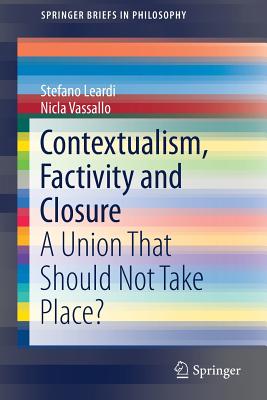Hume's Problem Solved: The Optimality of Meta-Induction
暫譯: 休謨的問題解決:元歸納的最佳性
Schurz, Gerhard
- 出版商: Summit Valley Press
- 出版日期: 2019-05-07
- 售價: $2,400
- 貴賓價: 9.5 折 $2,280
- 語言: 英文
- 頁數: 400
- 裝訂: Hardcover - also called cloth, retail trade, or trade
- ISBN: 0262039729
- ISBN-13: 9780262039727
-
相關分類:
機率統計學 Probability-and-statistics
海外代購書籍(需單獨結帳)
相關主題
商品描述
A new approach to Hume's problem of induction that justifies the optimality of induction at the level of meta-induction.
Hume's problem of justifying induction has been among epistemology's greatest challenges for centuries. In this book, Gerhard Schurz proposes a new approach to Hume's problem. Acknowledging the force of Hume's arguments against the possibility of a noncircular justification of the reliability of induction, Schurz demonstrates instead the possibility of a noncircular justification of the optimality of induction, or, more precisely, of meta-induction (the application of induction to competing prediction models). Drawing on discoveries in computational learning theory, Schurz demonstrates that a regret-based learning strategy, attractivity-weighted meta-induction, is predictively optimal in all possible worlds among all prediction methods accessible to the epistemic agent. Moreover, the a priori justification of meta-induction generates a noncircular a posteriori justification of object induction. Taken together, these two results provide a noncircular solution to Hume's problem.
Schurz discusses the philosophical debate on the problem of induction, addressing all major attempts at a solution to Hume's problem and describing their shortcomings; presents a series of theorems, accompanied by a description of computer simulations illustrating the content of these theorems (with proofs presented in a mathematical appendix); and defends, refines, and applies core insights regarding the optimality of meta-induction, explaining applications in neighboring disciplines including forecasting sciences, cognitive science, social epistemology, and generalized evolution theory. Finally, Schurz generalizes the method of optimality-based justification to a new strategy of justification in epistemology, arguing that optimality justifications can avoid the problems of justificatory circularity and regress.
商品描述(中文翻譯)
一種新的方法來解決休謨的歸納問題,並證明歸納在元歸納層面的最佳性。
休謨的歸納正當性問題幾個世紀以來一直是認識論中最大的挑戰之一。在這本書中,Gerhard Schurz 提出了一種解決休謨問題的新方法。承認休謨對於非循環性正當化歸納可靠性可能性的論點的力量,Schurz 反而展示了歸納最佳性,或更精確地說,元歸納(將歸納應用於競爭預測模型)的非循環性正當化的可能性。基於計算學習理論的發現,Schurz 證明了一種基於後悔的學習策略,即吸引力加權的元歸納,在所有可能的世界中,對於所有可供認識代理人使用的預測方法都是預測上最佳的。此外,元歸納的先驗正當化產生了對對象歸納的非循環性後驗正當化。這兩個結果共同提供了一個非循環的解決方案來解決休謨的問題。
Schurz 討論了關於歸納問題的哲學辯論,針對所有主要的解決休謨問題的嘗試進行了分析,並描述了它們的缺陷;提出了一系列定理,並附上描述計算機模擬的內容(證明在數學附錄中呈現);並捍衛、精煉並應用有關元歸納最佳性的核心見解,解釋其在相鄰學科中的應用,包括預測科學、認知科學、社會認識論和一般化進化理論。最後,Schurz 將基於最佳性的正當化方法推廣到認識論中的一種新正當化策略,主張最佳性正當化可以避免正當化循環和回歸的問題。











